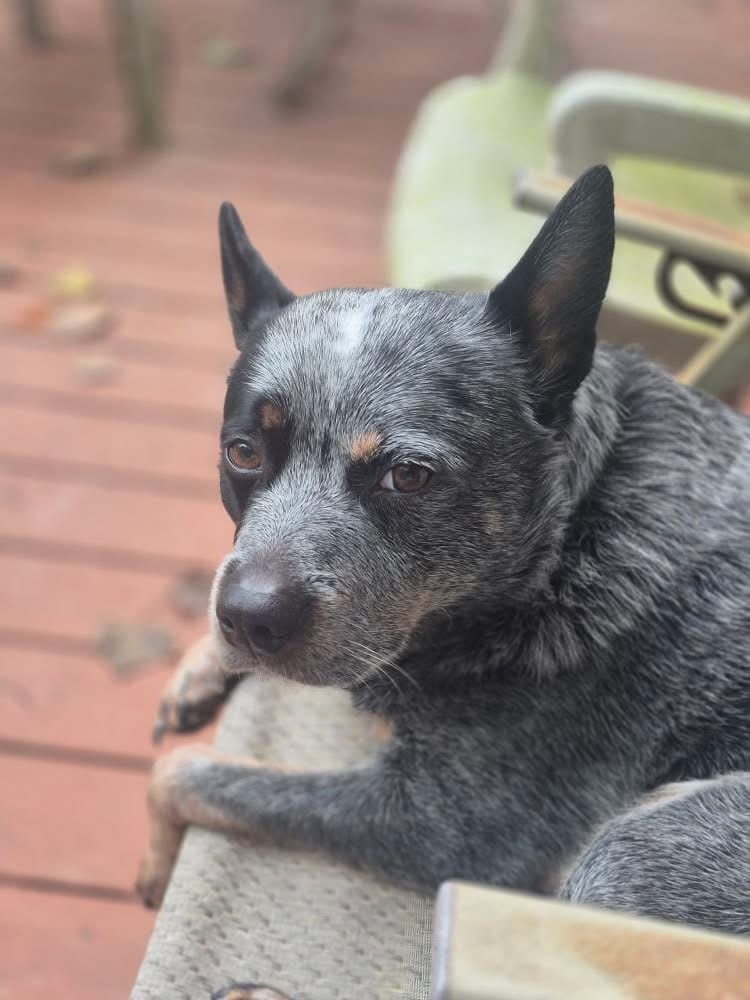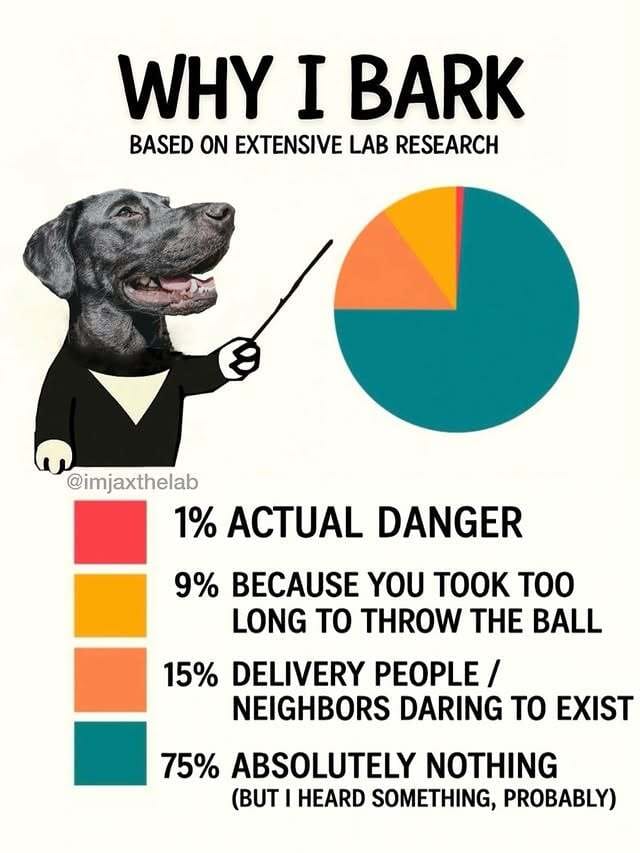Your daily dose of doggy goodness!
Every day, we celebrate our shared love of dogs and hopefully brighten your day. Enjoy!
Dog of the Day:
Marta!
Meme of the day: The wonder of the bark!
The Great Indoors: Why Your Dog Pees Inside When Another Dog Goes Out First
It’s a head-scratcher many multi-dog households face: You let one dog out to do their business, and the other immediately decides to relieve themselves on the living room rug. What gives? This frustrating behavior isn't about spite or a sudden lack of house training. Instead, it's a fascinating look into canine communication and emotion. Understanding the "why" behind this habit is the first step toward a more peaceful, pee-free home

Scent Marking and Communication
Dogs use urine to communicate. The dog that gets to go out first is essentially leaving a fresh message for the dog left inside. This can trigger a response in the second dog to "reply" by peeing inside the house. This isn't out of spite, but rather an instinctual attempt to reassert their presence or territory within the home.
Anxiety and Stress
The second dog may experience separation anxiety or frustration when they see the other dog getting to go outside without them. This stress can lead to a loss of bladder control. The dog may feel abandoned or anxious about being left behind, even for a short time.
Excitement and Arousal
For some dogs, the anticipation of their turn to go outside can be overwhelming. This excitement can lead to submissive urination, which is a common behavior in dogs who are easily excitable or a little nervous.
Medical Issues
It's always a good idea to rule out any underlying medical conditions, such as a urinary tract infection (UTI), bladder stones, or kidney problems. These can make it difficult for a dog to hold their urine, especially when they're stressed or excited.
How to Address the Behavior
Consistency is Key: Create a routine for letting your dogs out. Try to let them out in the same order each time, or alternate who gets to go first. This can help reduce the element of surprise and anticipation.
Positive Reinforcement: When the second dog goes outside and successfully pees, reward them with praise, treats, and affection. This will help them associate going to the bathroom outside with positive experiences.
Reduce Stress: Try to make the process of letting the dogs out as calm as possible. Avoid getting overly excited or worked up, as this can transfer to your dogs.
Consult a Professional: If the behavior continues, it may be time to consult with a veterinarian or a certified dog trainer. They can help you identify the root cause of the behavior and develop a training plan that's tailored to your dog's specific needs.
Remember, this is a very common issue, and with patience and consistency, you can help your dog learn to manage their bladder and find a more positive way to communicate.
Dog Food and Supplement Recalls
Here are the recent recalls and advisories:
Viva - Ground Beef for Dogs and Ground Chicken for Dogs and Cats for potential Salmonella and Listeria contamination.
Savage Pet - Cat Food Chicken for potential bird flu exposure.
Wild Coast Raw - Frozen Boneless Free-Range Chicken Formula raw pet food for cats, for possible bird flu exposure.
The Smile Section
Family Photo of the Day:
Remix!

We want to feature your pup!
We want to share your pup with our pack. Email us your favorite doggy pic or video with your pup’s name, and we'll try to feature it as a family photo in one of our upcoming newsletters or on our Facebook page.




